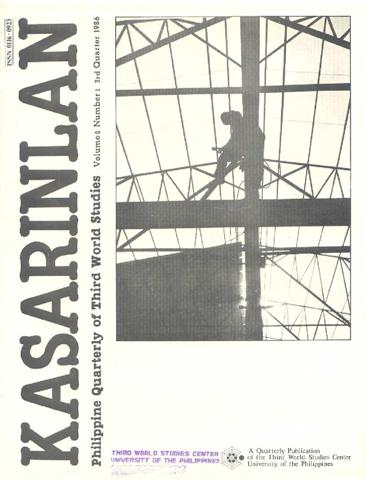Land and Natural Resources Reform
Abstract
The great inequities in the distribution of land have mainly been the doing of governments. Thus, it is also incumbent upon governments to dispense lands justly. As such, land reform is a redress for social injustice. Focusing on the issue of land and natural resources reform, this paper examines the relationship between political and economic reform and how they significantly affect the land and natural resources reform agenda; arguing that given a new administration under Cory Aquino, now is the opportune time to proceed with land redistribution. The process of land redistribution requires strong political will. More importantly, the paper argues that the genuineness of a land reform program depends on the extent to which it has managed to render social justice. There are several issues or myths that need to addressed in order for a new land reform program to be properly guided and be rid of the errors of the past. The paper also identifies the elements that define a just land reform and how they can be achieved given our social, political and economic conditions. Finally, it probes the case of Hacienda Luisita and its relevance to the land reform debate. The crux of the issue on Hacienda Luisita is if Cory Aquino and the rest of the high officials in her administration could demonstrate their willingness and commitment to land reform even at the expense of their own land holdings and land concessions.
Published
2007-11-22
Issue
Section
Features
Keywords
social justice; land reform program; Cory Aquino; Hacienda Luisita; land redistribution; political reform
By submitting a manuscript, the authors agree that the exclusive rights to reproduce and distribute the article have been given to the Third World Studies Center.



